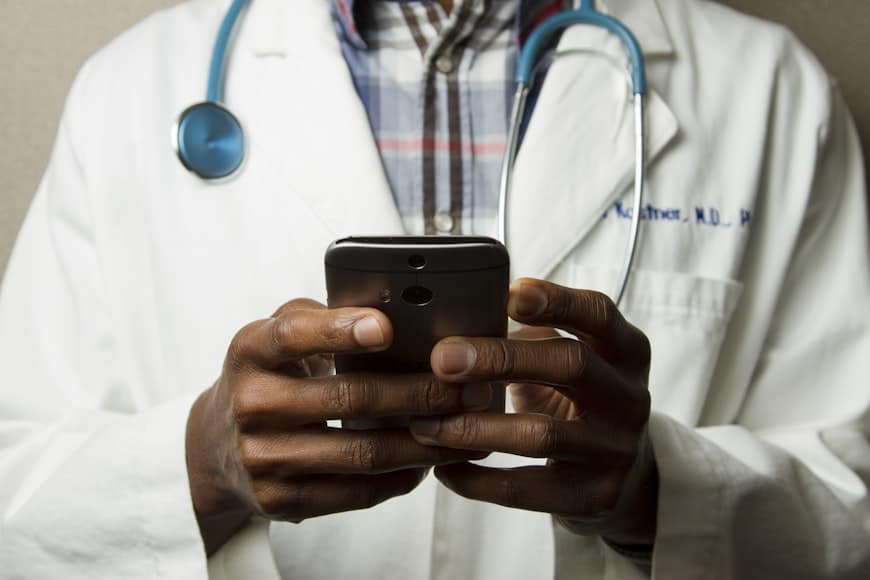Technological advancements have led to a significant paradigm shift in the way physiotherapy is delivered to patients. Over the last two decades, the integration of telehealth into physiotherapy practices has emerged as a revolutionary development, offering unprecedented convenience, accessibility, and efficiency in patient care.
Take a look as we explore the strides made in the field of telehealth for physiotherapy, emphasizing its potential to transform lives and reshape the future of healthcare.
Understanding Telehealth in Physiotherapy
Telehealth, often used interchangeably with telemedicine, encompasses the delivery of healthcare services through electronic communication and information technologies.
Today, this practice and method of supporting patients has expanded beyond traditional in-person consultations to include virtual sessions, remote monitoring, and digital communication channels.
Virtual Consultations
One of the key breakthroughs in telehealth for physiotherapy is the advent of virtual consultations. Through secure video conferencing platforms, patients can now connect with experienced physiotherapists from the comfort of their homes.
This not only eliminates geographical barriers but also addresses challenges related to transportation and mobility for individuals with physical limitations.
Remote Monitoring and Wearable Technology
Telehealth has embraced the integration of wearable technology and remote monitoring devices, allowing physiotherapists to track patients' progress in real time.
From monitoring exercise routines to assessing biomechanics, these technological tools provide valuable data that enhances the precision of treatment plans. This data-driven approach contributes to more personalized physiotherapy interventions.
The Benefits of Telehealth for Patients
The integration of telehealth into physiotherapy practices brings forth a multitude of advantages, benefitting both patients and healthcare providers.
Improved Accessibility
Telehealth bridges the gap between patients and physiotherapists, irrespective of their geographical locations. This enhanced accessibility ensures that individuals in remote or underserved areas can access expert physiotherapy services without the need for extensive travel.
Enhanced Convenience
Now more than ever, the convenience of virtual consultations cannot be overstated.
Patients can schedule appointments at times that suit their routines, eliminating the need for extensive waiting periods or disruptions to daily activities. This flexibility fosters increased patient engagement and adherence to treatment plans.
Cost-Effectiveness
Telehealth in physiotherapy often proves to be more cost-effective for patients. Reduced travel expenses, coupled with the potential to use existing technology, make telehealth a financially viable option for those seeking quality physiotherapy care.
Continuity of Care
Telehealth ensures a seamless continuum of care, particularly in scenarios where in-person visits might be challenging. Patients can maintain regular contact with their physiotherapists, fostering a consistent and supportive therapeutic relationship.
Overcoming Challenges in Telehealth for Physiotherapy
While the benefits of telehealth in physiotherapy are evident, certain challenges must be addressed to optimize its efficacy and integration into mainstream healthcare.
Technology Literacy
Ensuring that both patients and physiotherapists are comfortable and proficient in using technology is crucial. Educational initiatives and user-friendly platforms can alleviate this challenge and promote widespread adoption.
Physical Examination Limitations
Telehealth, by its nature, limits the ability to perform hands-on physical examinations. Physiotherapists must employ innovative strategies, such as instructing patients in self-assessment techniques, to compensate for this limitation.
Privacy and Security Concerns
Maintaining patient confidentiality and data security is paramount in telehealth. Compliance with robust privacy protocols and the use of secure platforms are essential to build and maintain trust between patients and healthcare providers.
The Future of Telehealth in Physiotherapy
As technology continues to advance, the future of telehealth in physiotherapy holds exciting possibilities.
Artificial intelligence, virtual reality, and machine learning are expected to play pivotal roles in enhancing diagnostic accuracy, treatment planning, and patient engagement.
Artificial Intelligence (AI) and Machine Learning
The integration of AI and machine learning algorithms in telehealth can contribute to more precise diagnostics and treatment planning. These technologies can analyze vast amounts of patient data, identify patterns, and offer insights that drive the therapeutic benefits of physiotherapy interventions.
Virtual Reality (VR) in Rehabilitation
Virtual reality holds immense potential in physiotherapy by creating immersive environments that facilitate rehabilitation exercises. VR can enhance patient engagement, motivation, and adherence to prescribed exercises, making the rehabilitation process more enjoyable and convenient.
Embrace the Future of Physiotherapy Care and Services
The integration of telehealth into physiotherapy represents a transformative leap forward in healthcare. The advantages of improved accessibility, convenience, cost-effectiveness, and continuity of care position telehealth as a valuable complement to traditional in-person physiotherapy services.
As technology continues to evolve, the future promises even more innovative approaches that will redefine the landscape of physiotherapy. Today, the healthcare industry continues to embrace the potential of telehealth, physiotherapy stands as a shining example of how technology can enhance and expand the delivery of essential services.
The journey towards a healthier and more connected future is underway, and the fusion of physiotherapy expertise with telehealth innovations is paving the way for a new era in healthcare.
For those seeking progressive and patient-centric physiotherapy services, Excel Body & Health continues to leverage telehealth to provide expert-led care to individuals striving to overcome health challenges.

